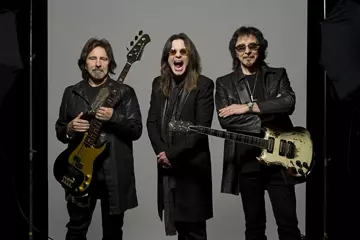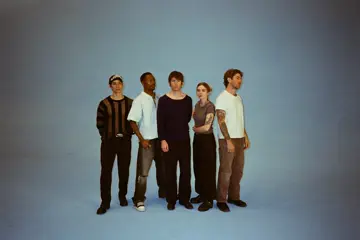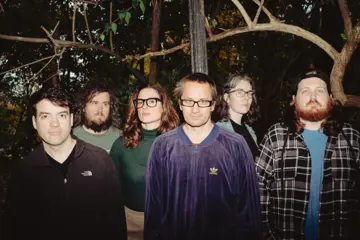finding dory

It sounds like the script for a Sundance drama courting Oscar-buzz: a character suffering from a memory disorder goes on a road-trip in search of her family, and her past; returning to her old stomping grounds, meeting a cast of crazy characters, and discovering the truth about herself along the journey. Instead, it’s the plot of Finding Dory, in which the gold-fish memory gag from 2003’s Finding Nemo is turned into a long study in memory. And the dark secrets from the titular fish’s past turn out to be that she had a mum and dad who loved her very much; this, essentially, an inspirational story about living with a disability.
The latest Pixar film ladles on the visual splendour (an underwater world!) and sentimental psychology that’s made the animation-studio Hollywood’s most bullet-proof brand. If a 13-years-on sequel seems inessential in theory, to be convinced otherwise you need only spend a minute with Hank, its mimic octopus; whose comic camouflage and ever-inventive use of appendages speaks of the impish intelligence of real-life octopodes. And, there’s a bunch more memorable characters —a gonzo tern, a sonar-challenged beluga, a near-sighted whale shark, geezer sea lions— that are never less-than-inspired. By the time it climaxes with a reference to Inception (!), Finding Dory has not only justified its existence, but staged a master-class in cinematic charm.
money monster

It’s the most All-American of situations: a hostage stand-off. Jack O’Connell, in goombah accent and khaki parka, walks into a TV studio and points a gun at George Clooney, smarmy host of a cheeseball stock-trading show. Now, bad-ass producer Julia Roberts isn’t just in charge of an episode of television, but the lives of everyone involved! At first, Money Monster seems like it’s going to be a generic thriller: a locked-room three-hander in which the TV set is a stage, and, with theatrical wordiness, Roberts and Clooney need to talk back a desperate man from the brink.
Don't miss a beat with our FREE daily newsletter
As it progresses —and, especially when it breaks out of the studio— the screenplay, however, becomes increasingly satirical, its worldview growing broader; the film not just about its A-list stars, but about all the random members of the general public watching on. It’s, essentially, a cry-of-rage against Wall St. fraud, a table-turning fantasy in which an unrepentant-asshole of a CEO is made the villain, and made to, finally, apologise. But it’s also, sadly, a cry-of-rage that involves people pointing guns at each other and genre-tropes aplenty; its All-American approach delivering justice down the barrel of a gun, the film firing more literal shots than figurative shots.
miles ahead

Miles Ahead is the best musician biopic since… wait, has there ever been a good musician biopic? Don Cheadle’s full-Orson turn as writer/director/star succeeds where this risible
genre normally always fails because there’s none of the clichés: no childhood flashbacks, no cutting the classic album, no people telling us that the subject is a genius. Instead, it essentially looks at 24 hours in 1980, with Davis deep into a troubled quasi-retirement, strung-out and anti-social; the lion in winter on a shit-ton of cocaine, filled with painful, artfully-cut-into (the trail-of-polaroids-on-furniture sequence is brilliantly staged) memories of his first marriage to Emayatzy Corinealdi.
There’s no three-act structure, no hero’s journey, no redemption, no cod psychologising, no intertitles telling us place names and years; Cheadle’s storytelling approach largely impressionist, if not scattershot. There’s Ewan McGregor as a journalist/blaggard trying to coax a story out of “jazz’s Howard Hughes”, the always-amazing Keith Stanfield as a desperate trumpet prodigy/junkie, and Michael Stuhlbarg as a sleazy ‘producer’ out to make off with Davis’s most recent session tapes. These tapes are a MacGuffin: something fought over, stolen and stolen-back; a thing that begets cocked pistols and car-chases; a fabulously-empty symbol of greed and control that situates the film, slyly, in the conflict between art and commerce.
a perfect day

In Fernando León de Aranoa’s wartime black-comedy A Perfect Day, an international cast of cynical aid workers in Bosnia —Benicio del Toro, Tim Robbins, Mélanie Thierry, Olga Kurylenko, Fedja Stukan— have a seemingly-simple task ahead of them: remove a dead body from a local well. Instead, it becomes a Sisyphean ordeal, the crew spending 24 hours jumping through an increasingly-frustrating series of hoops; not least of all being where they’re going to find rope.
It’s, essentially, a comic critique on the efficacy —and futility— of aid; with simple efforts to ‘help’ undone by bureaucracy, hostile locals, competing military interests, wartime shortages, the ever-present danger of landmines, and a helping of the comically absurd. Like all stories in which laughter is the medicine of conflict, A Perfect Day is a film about coping: with war, with loss, with rotting corpses, and with the constant quotidian disappointments of trying to make a difference in an indifferent world.
downriver

Whilst the Australian outback is a familiar symbol of local cinematic menace, the hostile environs in Grant Scicluna’s Downriver are, instead, a snaking stretch of the Yarra; water a turgid brown, gumtrees dangling over. It’s a testament to Scicluna’s command of mood —he cites Polanski and Haneke as his heroes— that he manages to make scenic, leafy Warrandyte feel eerie, oppressive.
His debut feature is striking for how the filmmaker manages to sustain this mood throughout, by the way it starts tense, and grows tenser; there a feeling of slow suffocation that isn’t broken even in moments of dry tedium or wild revelation. This elevates a so-so story of traumatic memory, buried-secrets, punishable villainy, and macho homoeroticism into a genuinely unsettling experience.
the wailing

At the peak of The Wailing’s utter hysteria, duelling shamanic rituals play out: drums thumped, chickens beheaded, blood smeared on faces, a little possibly-possessed girl convulsing. It’s pure cinematic cacophony, incredibly loud and frenetically edited; a sequence sustained way beyond the point where another filmmaker would stop already. This is, essentially, the approach of director Na Hong-jin: a filmmaker who’s shown he’s fond of excess and ridiculousness (The Chaser, The Yellow Sea), but pushes things even further, here.
The Wailing is 156 minutes long, as dim-witted and dawdling as its central character, a cowardly cop (Kwak Do-won) who bumbles his way into situations both buffoonish and horrifying. He’s on the case of a mysterious string of murders —and/or, perhaps a zombie outbreak— in a rain-soaked Korean hamlet, and anyone who watches films for examples of problem-solving, human ingenuity, or logical behaviour will be maddened by the idiocy of all involved.
But said idiocy is behind the film’s themes, which explore smalltown superstition, religious hysteria, and anti-Japanese sentiment. By the time Kwak rounds up a bunch of villagers bearing pitchforks (there’s nary a gun to be seen, herein) and Angry Mob Justice is let loose, the film is at once critique, comedy, portrait of revenge, and splatter-horror. And, by the time it ends, Na pushes the contrast between his pathetic hero and his all-powerful villain (the devil himself!) to extremes both amusing and unsettling.















